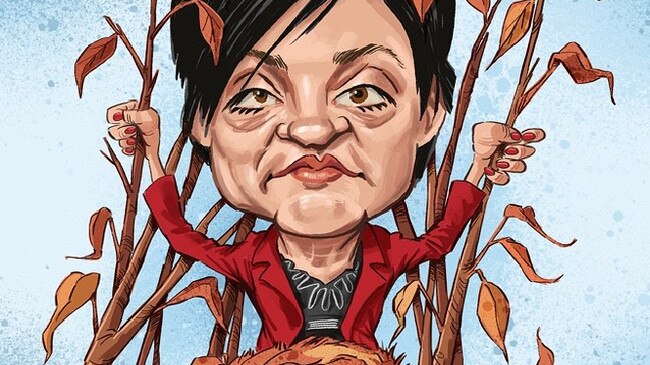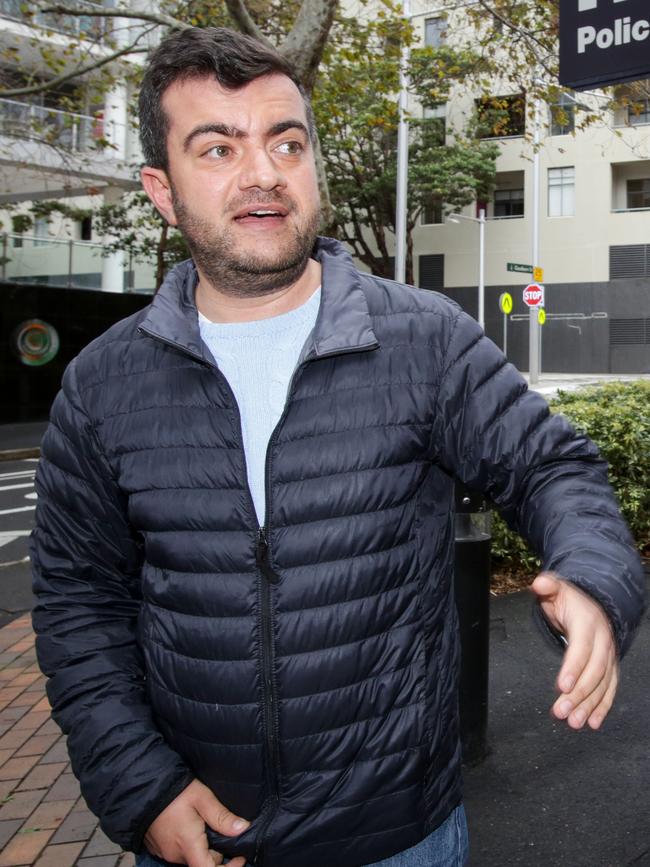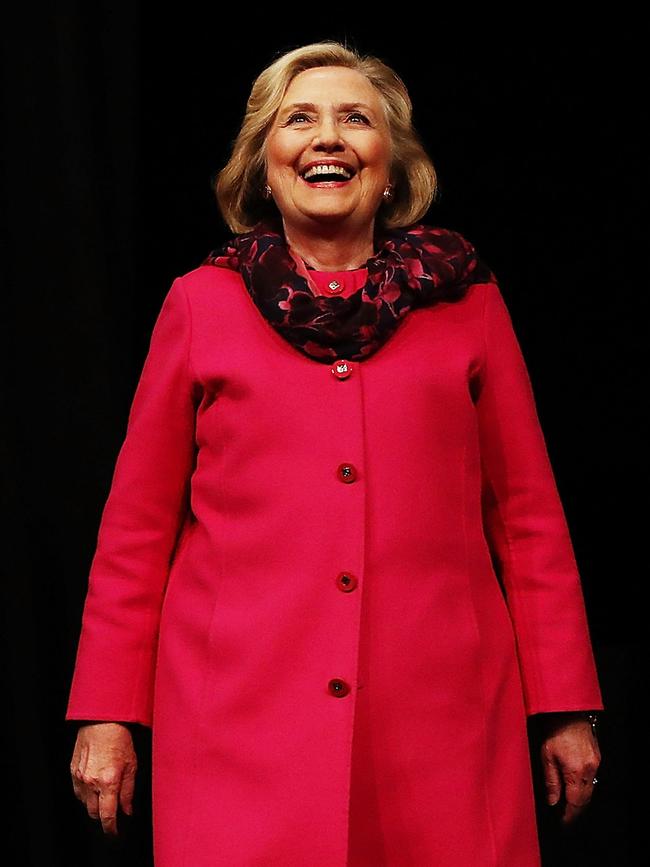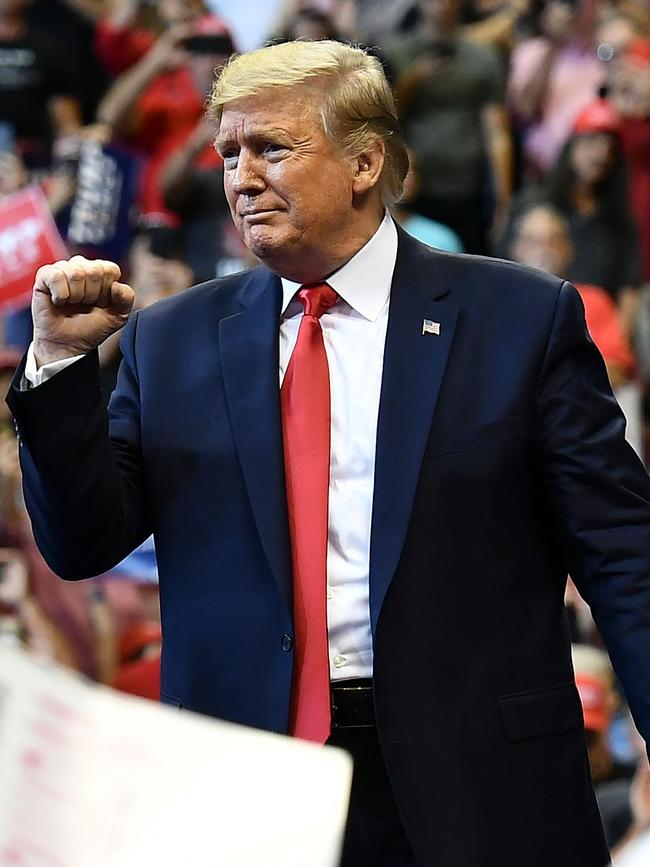Branch stacking investigation the first real test for ALP leader Jodi McKay
Calls are growing louder for Labor to take power from factions and reconnect with the voters whose support it seeks by actually giving them a say in their candidates, writes Anna Caldwell.
There’s one big problem with NSW Labor HQ probing allegations of systemic branch stacking in Western Sydney: Senior party figures fear that once they start pulling the thread, they don’t know how much will come unravelled.
Labor HQ has been asked to look at evidence spanning almost a decade which alleges the powerful Ferguson faction — known in party circles as “the family” — have employed a range of techniques to ensure their people got preselected.
The allegations, which have been vigorously denied, include falsifying meeting attendance books and paying for people to become members — all in the name of making sure they had enough muscle power to put their candidates into the seats and positions they wanted them in.
While Labor and two shadow ministers alleged to be involved in the scandal initially took cover in the fact that the complaint had been presented anonymously, within just days of my reporting on the allegations it had received 45 signatures.

This is the first test for the NSW branch of the party since it pledged to clean itself up in the wake of horror ICAC evidence about bags of cash and cloak-and-dagger back road meetings.
It is also considered a test for new Labor leader Jodi McKay, who received the support of the Ferguson faction when she was elevated to the top job.
But beyond all that, a bigger question is brewing.
Is it time to consider a new way for candidates to be selected?
A way that doesn’t rely on factional powerbrokering, backroom deals and handshakes that are all designed to sure up the influence of a select few?
There is quiet push for the party to consider returning to what’s known as a “community preselection” process whereby residents of an electorate are invited to vote for who they think should be Labor’s candidate.
MORE OPINION
What Prince Andrew’s mess means for Beatrice’s wedding
How Clive James made me feel welcome in Australia
Calm down, it’s Santa — not Satan
This process allows anyone to vote for preselections, so long as they are not a member of another political party.
This is a much more democratic way of making these decisions and would effectively kneecap factional warlords who can move entire branches behind their preferred candidate – and therefore have an incentive to inflate said branches.
This has been trialled in various electorates and elections in recent years, but with no real widespread or long term commitment.
Labor used the process in 2012 to come up with a candidate to challenge Lord Mayor Clover Moore and reports at the time said then General Secretary Sam Dastyari wanted the process to help the party “reconnect with the community”.
How novel! The more things change, the more they stay the same.
Labor hasn’t won a NSW or federal election since then, and here we are in 2019 with the party facing brutal reminder after brutal reminder that it is not connected to the community whose votes it seeks.

By no means are factional puppet masters and party powerbrokers unique to Labor. We know that the Liberals, too, have, and indeed continue to be beset by, factional power plays and appalling preselection brawls.
But it is Labor in NSW which is clearly the party struggling to form meaningful enough connections with voters in order to deliver the party the shot at governance.
It is Labor that must do more to connect with the real mum and dad voters who look to the party for a better life and expect the best candidate rather than one who is friends with the right people.
And so perhaps it is time to rethink how candidates are chosen, and in the process clean out the rot that has set in at branch level.
If Labor political hopefuls were forced to connect with their electorates instead of just wooing branch bosses in order to have a shot at public office, surely they’d be in a better position come polling day.
The primaries process of the 2016 US election is worth considering when we contemplate whether it is the party’s power base who is best equipped to choose our MPs.


Back then, the Democratic Party machine knew it wanted Hillary Clinton selected. Party officials were privately mocking her opponent Bernie Sanders in emails and loyal Democrats were left with no doubt about just who the party wanted to contest the election and used every trick in the book to cruel his campaign. And they delivered her the candidacy.
The Republican machine, on the other hand, did not want Trump – but were not successful in interfering to a degree that could stop him. He fought a brutal preselection fight and destroyed all of their preferred candidates with hand-to-hand combat.
And then, despite all of the collective democratic powerbroker wisdom, it was Trump who could connect with the American people.
There’s a sideline brawl brewing in Granville that may just test how kindly voters take to the idea of branch stacking and how important community connection is.
Cumberland Mayor Steve Christou will pledge today to run for the seat of Granville if shadow minister Julia Finn is not stood aside over alleged branch stacking activities.
Finn was identified as a player in the alleged scheme in the 33 page whistleblower dossier which prompted McKay and Albanese to ask HQ to investigate.

Christou quit the Labor Party himself this year and believes the party has left the people it represents disenfranchised.
Christou’s council ward shares a similar electorate to Finn’s, and he could give Labor a run for its money and put the question of community connection versus factional appointments to the test.
“Given the recent events and claims of branch stacking, the NSW Labor Party needs to act very quickly,” he said.
Finn has denied the allegations, as has her fellow frontbencher and Ferguson faction operative Lynda Voltz.
There are enough members and ex-members angry and devastated by cultural problems that exist in the way the party has done things that mean head office will not succeed in sweeping branch stacking complaints under the rug as it has done in the past.
There should be no doubt that the ICAC shaming of those in Labor’s highest office has now empowered rank-and-file types to blow the whistle on what they see as corruption.
Labor must fix its internal problems in NSW in order to be the party that can convince everyday voters that it exists to make their lives better — not to make powerful party apparatchiks more powerful.

